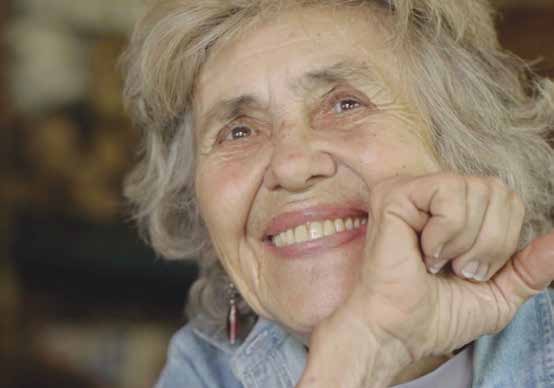
In 2014, while shooting a short documentary about lesbians and aging, Bay Area filmmaker Deborah Craig stumbled across octogenarian Sally Gearhart living alone in a remote and ramshackle cabin in the Northern California woods. Craig was charmed by this outrageous and mischievous character—who sported rumpled t-shirts, paint-stained jeans, and bright pink lipstick—and then realized that in the 1970s and 80s she was a beloved lesbian-feminist icon. Dismayed that she had barely heard of Gearhart, Craig began to research and record her story.
Spanning ten decades, from the 1930s to the 2020s, the feature documentary Sally is a humorous, thought-provoking, and inspiring American road-trip in search of iconic lesbian-feminist activist Gearhart. Brilliant, charismatic, provocative, and visionary, Gearhart worked side-by-side with Harvey Milk, was a heroine to the first generation of open lesbians, and was one of second-wave feminism’s most radical voices.
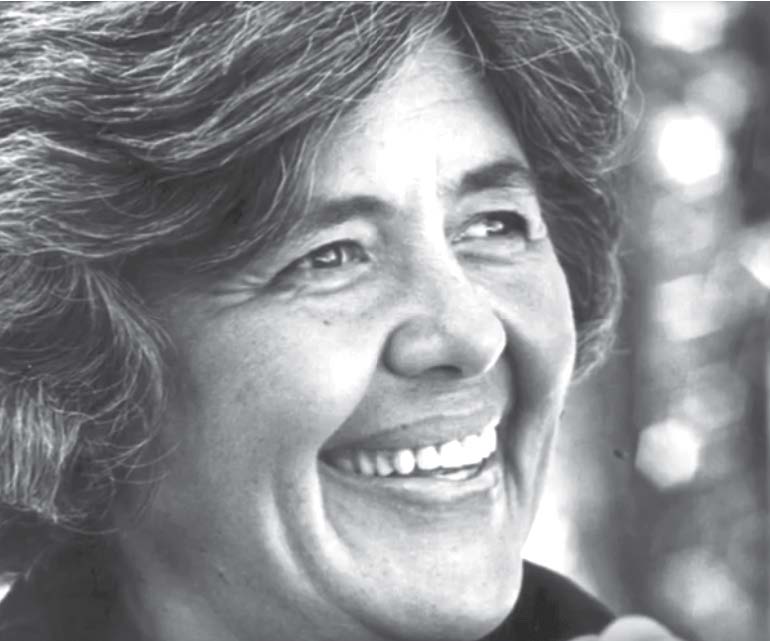
She was the first “out” lesbian to obtain a tenure-track faculty position, a founder of one of the first women’s studies program in the country, and a popular science fiction author. During one of the most terrifying, thrilling, and revolutionary periods in the gay rights struggle, Gearhart was literally center stage. Yet her crucial role in the fight against the 1978 Briggs’ Initiative, which sought to ban homosexuals from working in California’s public schools, has been virtually erased.
Outside lesbian circles, too few people know her name. The film Sally takes us on a hilarious, complex, and surprising journey to discover how a “good Southern girl” became an “outrageous” lesbian separatist leader and ended up living alone in the woods, largely forgotten by history.
But while Sally starts as the story of a “hidden figure”—a key historical actor omitted from the mainstream narrative—it deepens into a broader exploration of the complex relationship between icons like Gearhart and movements for social transformation. These movements seem to need their heroes, and she certainly relished that role and delighted in the ruckus.
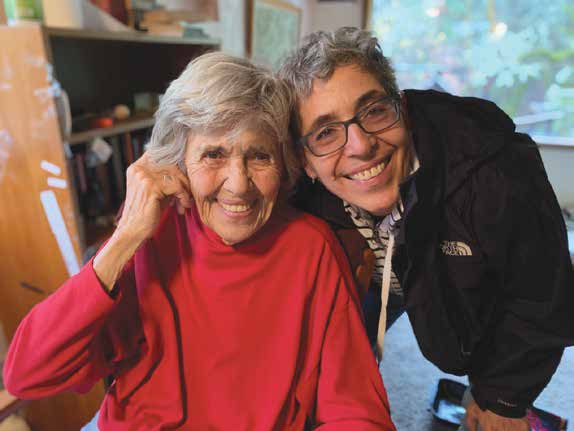
But did she also pay a price for her fame and notoriety? Moreover, to focus solely on Gearhart the way the movie Milk made a hero of its namesake seems to miss the point. Sally questions such a patriarchal approach to history, aiming instead to encapsulate the hopes, triumphs, missteps, and failures of a whole community striving to dismantle the existing oppressive system and build a better world.
Fundamentally, Craig’s film hopes to show Gearhart’s continuing relevance. Although she’s now almost 90, and somewhat isolated in the California woods, Gearhart and her key concerns—violence against women and environmental devastation—are more relevant than ever. Her fantasy novel The Wanderground—with its flying, mind-reading lesbians and “remember rooms” where women share their experiences of male violence—foreshadows current events like the Women’s March and #MeToo movement.
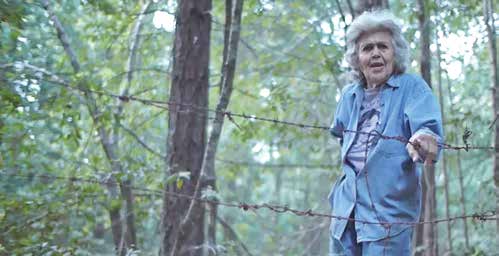
And Gearhart’s fears about the destruction of the earth are coming true right before our eyes, with California frequently on fire, other states under water, ice melting, sea levels rising, and climate change deniers in the very highest ranks of our government until just months ago.
Gearhart has a critical message for us: She battled fiercely for justice with humor and authentic inquisitiveness about the other side. She was a radical lesbian separatist who delighted in the company of men; a revolutionary who purposely forged friendships with Republicans; and an environmentalist who reached out to loggers, smoked like a chimney, and subsisted on Pepsi.
Ultimately, she shows us that reaching across the political and philosophical divide is more powerful than preaching to the choir—as much as she loved a pulpit! Her skill and delight in conferring with her adversaries might be her most relevant message for our fractious and polarized era. We stand firmly upon her shoulders and need her spirit now more than ever!
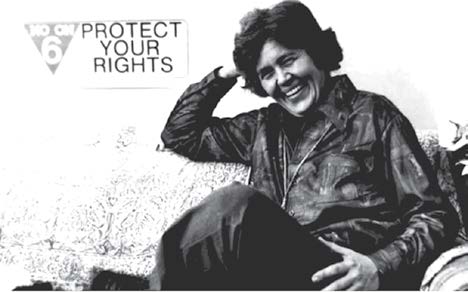
Craig’s core film team includes Ondine Rarey (co-producer and editor), Jörg Fockele (co-producer), Jenni Olson (archival producer), Silvia Turchin (director of photography), and Lauretta Molitor (sound recordist). They are halfway through production and getting ready to film the final interviews (remotely, due to COVID-19), dive into archival research, and animate The Wanderground.
To find out more about the project, the people behind it, and how you can get involved, check out the Sally Kickstarter campaign at https://tinyurl.com/c4e5enyd
Note that the filmmakers raised their Kickstarter goal within the first 48 hours of their campaign and are now hoping to use the momentum to finance post-production (editing, music, etc.) through a “stretch goal” on Kickstarter.
You can also follow the film on Facebook ( https://tinyurl.com/yvm3mkva ) and check out the “Sally” webpage at https://www.documentaries.org/sally
Published on March 11, 2021
Recent Comments